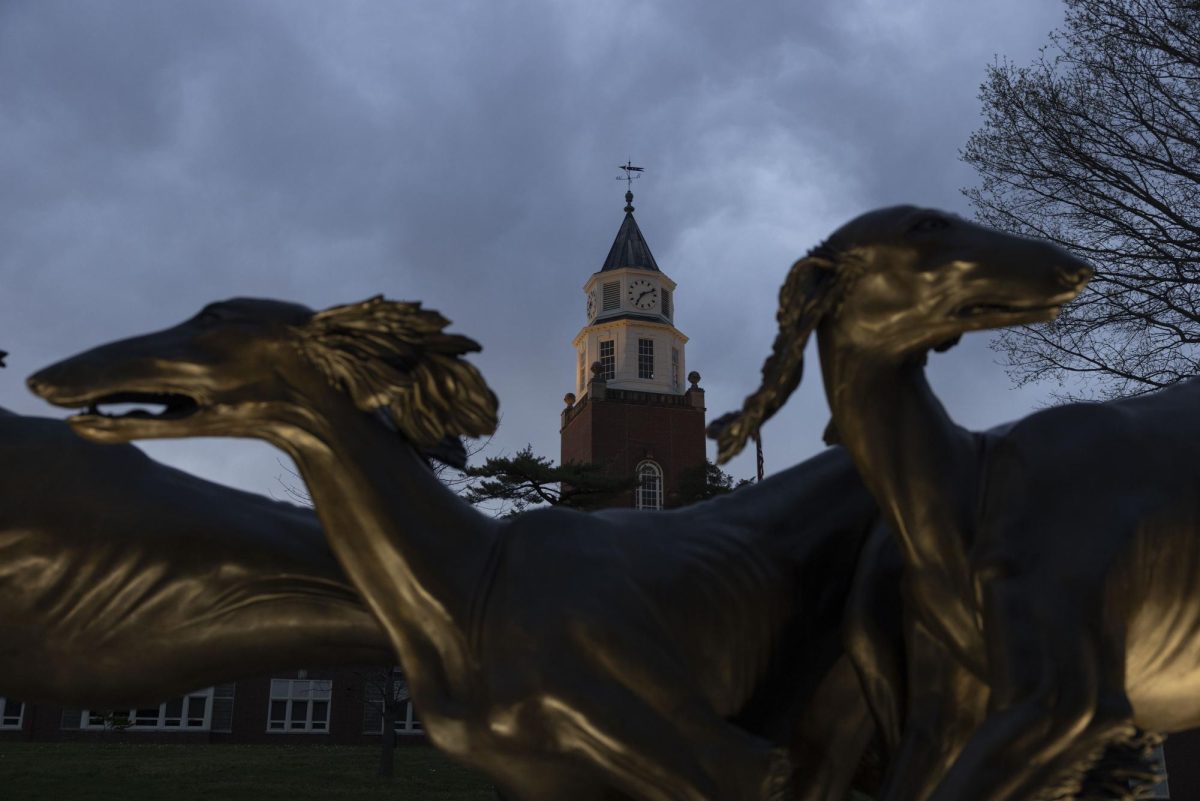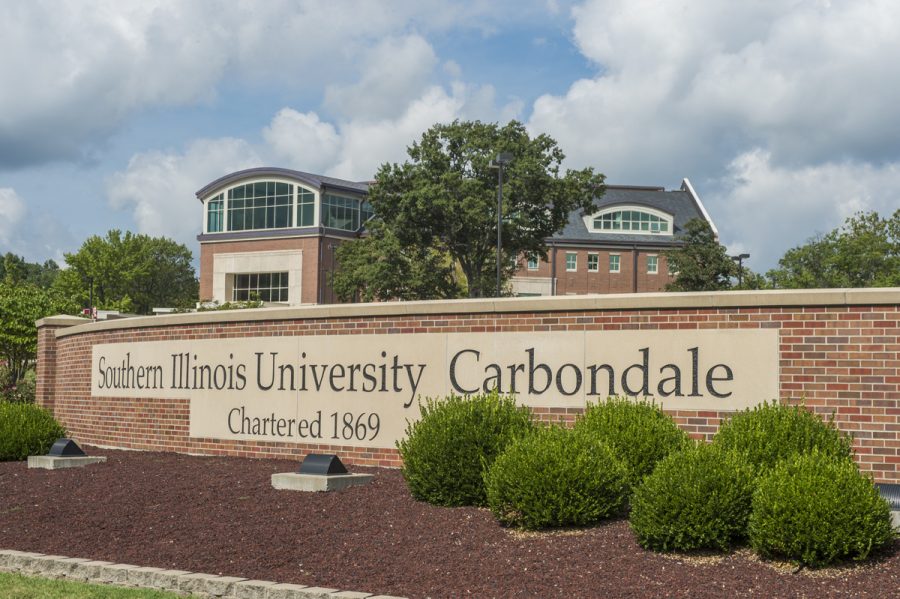Nicklow: New financial model needed to push university beyond budget crisis
September 14, 2011
Kimberly Asner-Self, associate professor in educational psychology and special education, listens to John Nicklow, provost and vice chancellor, respond to her question Tuesday during the Faculty Senate meeting in the Kaskaskia Room at the Student Center. Asner-Self was concerned about the negative effects on students and the university if the number of faculty in a department decreased. She said with fewer professors, fewer classes would be offered, leading to longer college careers for students and a negative reputation for SIU. “It’s a downwards spiral,” Asner-Self said. – Steve Matzker | Daily Egyptian
Despite some colleges’ desires to fill vacant positions, John Nicklow said he hopes to have a new financial model in place this year that requires each college to justify filling a position.
Nicklow, provost and vice chancellor for academic affairs, said Tuesday during the Faculty Senate meeting in the Student Center Kaskaskia Room that he put together a task force to evaluate how to best proceed with what is referred to as ‘position control,’ or the ability to pull funds from colleges with vacant positions and declining enrollment to reallocate the money to colleges that are showing signs of growth and have greater demand.
Advertisement
Nicklow said colleges that show signs of enrollment growth — the College of Agricultural Sciences, up 9.1 percent; the College of Mass Communications and Media Arts, up 5.4 percent; and the College of Science, up 6.2 percent — are those which may need additional faculty or funding.
A hiring freeze was implemented in 2009 to help with the university’s $5.7 million budget deficit, which is nearly half of the $11.5 million deficit from one year ago. Vacant positions across campus have not been filled unless deemed necessary, such as the hiring of two new deans this year, Nicklow said.
He said with this new strategy, the university can look beyond its budget crisis by implementing a streamlined hiring method for all colleges.
“It is a necessary step. One of the steps is simply maintaining the status quo, not losing anymore,” Nicklow said. “Another is growing, to do that we have to allow growth to occur strategically… If we simply do things as we’ve always done them, we’re going to get the same results.”
The provost’s office is in charge of allocating money to colleges at the start of each fiscal year but is left with a massive deficit because it overallocates funding to colleges with declining enrollment and lesser demand, he said.
Nicklow said Tuesday the idea is that the department and college would have to justify the position before it can be filled once the financial model is in place.
“Frankly, (the provost’s office) overcommits to a far greater extent than we should even think about,” he said. “Then we end up with a situation at the end of the year where we have to fill the deficit.”
Advertisement*
Money allocated at the beginning of each fiscal year stays within the college.
“In essence, with the realignment, what we’re saying is ‘we’re not just going to hand it out to start with. We’re going to keep (money) central,’” Nicklow said. “It’d be like the employer saying, ‘let’s pay the bills and then make sure we pay you a fair wage.’”
He said one college in particular has 22 open positions and low enrollment but would prefer to fill all existing positions. Doing so would not be justifiable, he said. After the meeting, Nicklow declined to comment on which college he was referring to.
Jose Ruiz, a professor in aviation management and flight and Faculty Senate member, said Tuesday during the meeting he doesn’t believe a committee or someone outside of his college is the best candidate to decide what justifies filling a position in the college.
“Speaking to some of my colleagues, the sense I’m getting from a lot of the faculty is that they feel territorial about centralizing man-power position to the provost’s office and honestly, I feel the same way,” he said. “I haven’t really wrapped my arms around it, and I’m having difficulty accepting this.”
Both Ruiz and Kimberley Asner-Self, associate professor in educational psychology and special education and member of the Faculty Senate, said they were concerned about not having enough faculty members to teach required courses if the new strategic realignment was in place.
At the meeting, Kenneth Anderson, professor of geology and Faculty Senate member, said he is concerned that this particular financial model is now the only option to be looked at when there were additional models under consideration at the last Faculty Senate meeting.
“Now, from the conversation taking place now, I presume this is fairly complete, that this is the model we’re going with,” Anderson said.
Nicklow said many details have to be worked out before the strategic realignment could go into effect, which may be sometime this year.
“We are headed this direction … we are certainly looking at all the details and how it would be implemented,” Nicklow said.
He said there is still much to work through before the new strategy could be implemented.
“It’s a major change in how we handle (hiring),” Nicklow said after the meeting. “(It’s about) making sure people know how to request positions and workflow. These sound like minor details, but they are major issues.”
Nicklow said when someone leaves or retires, he and the committee would evaluate whether the position is still needed or if it could be combined with another.
“There will be programs that have trouble justifying why they need a position, and it’s not the program that has accreditation. It’s not the program that has a great growth and demand, and it’s not the program that is sustainable,” he said. “It’s the program that frankly may not be viable (and) isn’t as high of priority as some of the others.”
Nicklow said the university’s current financial model lacks the flexibility needed to support demand in particular colleges.
“It’s been surprising to me, as a relatively new provost, to come in and see that the opportunity for strategic investment really is absent,” Nicklow said. “This is a step that would allow … if you look around campus, you’ll find that these areas where demand is high, that there is support for this because it allows for strategic investment.”
Advertisement









